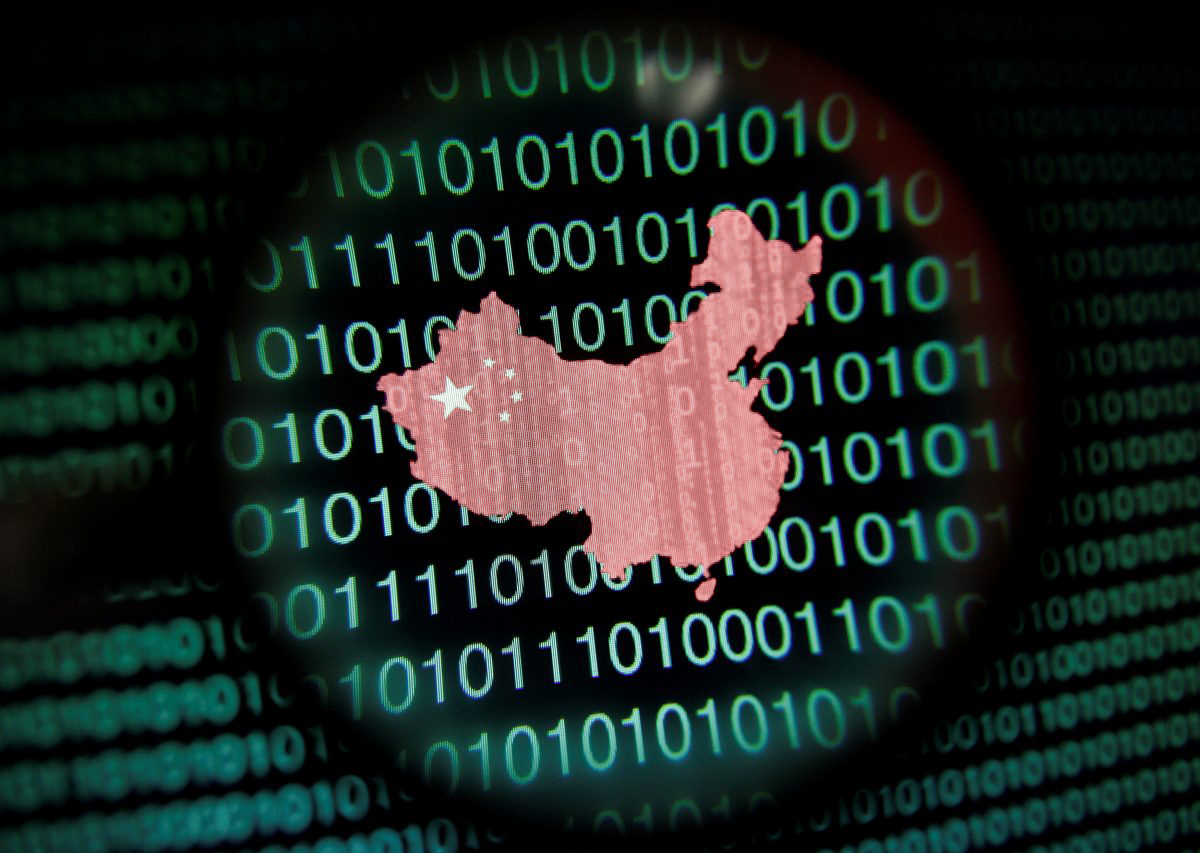Chinese Regime Issues Internet White Paper, Encouraging Other Countries to Adopt Its Tech for Information Control
Distressed Patriotic Flag Unisex T-Shirt - Celebrate Comfort and Country $11.29 USD Get it here>>

The Chinese communist regime recently released a white paper about “rule of law” for the Internet, openly stating its intentions to export its “experience” in internet totalitarianism to other countries.
Experts point out that the Chinese Communist Party’s (CCP’s) white paper indicates that Chinese authorities are able to fully control the Internet using modern technology and that its control model has in fact already spread to the wider world.
The regime’s State Council Information Office issued the white paper titled “China’s Internet Rule of Law Construction in the New Era” on March 16. It stated that the regime would “strengthen international exchanges and cooperation on the internet rule of law” and “share experiences and practices” with other countries. The nearly 18,000-word long white paper was released in eight languages.
The spokesperson of the State Council Information Office stated that the regime’s “internet rule of law” includes the “integrated promotion of online legislation, online law enforcement, online judiciary, online law popularization, and online legal education.”
Pushing Internet Totalitarianism
Lai Chung-chiang, the convener of the Taiwan Economic and Democratic United think tank and a practicing lawyer, told The Epoch Times on March 16 that the CCP’s totalitarian digital empire incorporates every move of the people into the scope of the government’s network supervision.
“They monitor people’s every move through various monitors, facial recognition, digital health codes, and security codes. This is like the acme of the totalitarian state described by George Orwell in his novels [1984 and Animal Farm].”
The CCP’s white paper states that the CCP’s internet management involves the participation of multiple parties, including the government, enterprises, social organizations, and netizens.
Lai said the white paper shows that the CCP still focuses on internal control; that is, the monitoring of the Chinese people.
The document mentions that the publication of the white paper is “to give a comprehensive introduction to the construction of the rule of law on the internet in China, and to share the experience and practice with other countries.”
The white paper goes on to state that the CCP is willing to work with the international community to “jointly promote the process of rule of law in global internet governance.”
Meanwhile, the regime’s state media mouthpiece Xinhua News Agency released CCP leader Xi Jinping’s speech titled “CCP in Dialogue with World Political Parties High-level Meeting” on March 15.
Wang He, a China observer and Epoch Times contributor, told The Epoch Times on March 16 that the CCP has always been exporting totalitarianism on the internet to other countries.
“There are two main parts [of its strategy],” he said. “One is to export cyber dictatorship to the world through the regime’s economic-political project the ‘Belt and Road Initiative’; the other is to conduct network surveillance, theft, and cyber espionage on the United States, the West, and the whole world through cyber warfare, and launch some covert cyber wars.”
Lawyer Lai added, “China [the CCP] uses its huge population to form a cyber army, including robots of course, to carry out cognitive wars and digital attacks on countries, including Taiwan. It’s been doing it for years.”
Cybersecurity firm CrowdStrike released its annual Global Threat Report in early March, stating that in 2022, hacker organizations related to the CCP significantly increased their cyber espionage activities, attacking almost all 39 industry sectors in 20 geographic regions around the world.

Lin Zongnan, a professor at the Department of Electrical Engineering and Telecommunications Engineering Research Institute of the National Taiwan University who specializes in network communications, told The Epoch Times on March 16, “The CCP is now using technology companies that work in both military and civilian fields, such as Huawei, TikTok, etc., not only to completely suppress people’s voice in China, control everyone’s [information] consumption, etc., but also to extend this control model to the whole world. The CCP has already exported mass surveillance technologies and mechanisms to some authoritarian countries.”
Wang pointed out that the biggest problem with the Internet in China is the absence of internet human rights.
“The CCP only talks about the internet sovereignty, not the internet civil rights,” Wang said. “The CCP has integrated three high-tech surveillance systems into one, including surveillance on individual movement, financial surveillance, and surveillance of online speech and actions.”
The internet freedom report released by U.S. government-funded think-tank Freedom House in October 2022 pointed out that China has been identified as the country with the worst internet environment in the world for the eighth year.
Lin said, “The CCP is only using the righteous words to whitewash its control over the people. This internet white paper is for strengthening its control of the internet.”
Ning Haiphong and Luo Ya contributed to this report.




